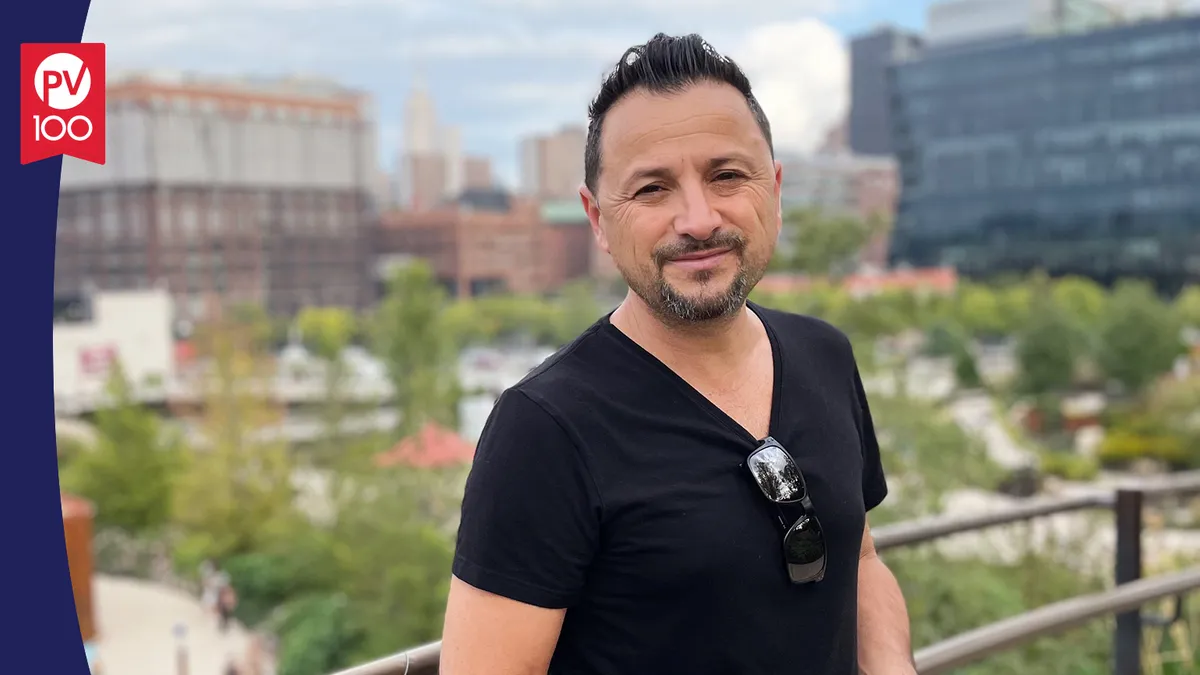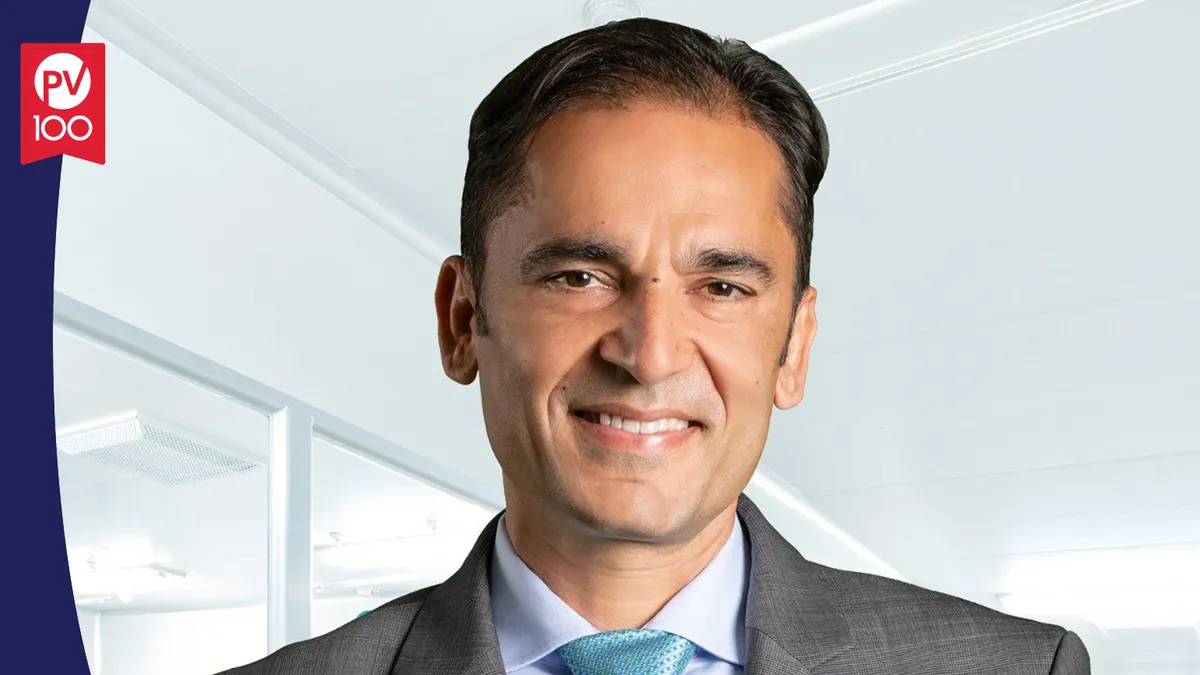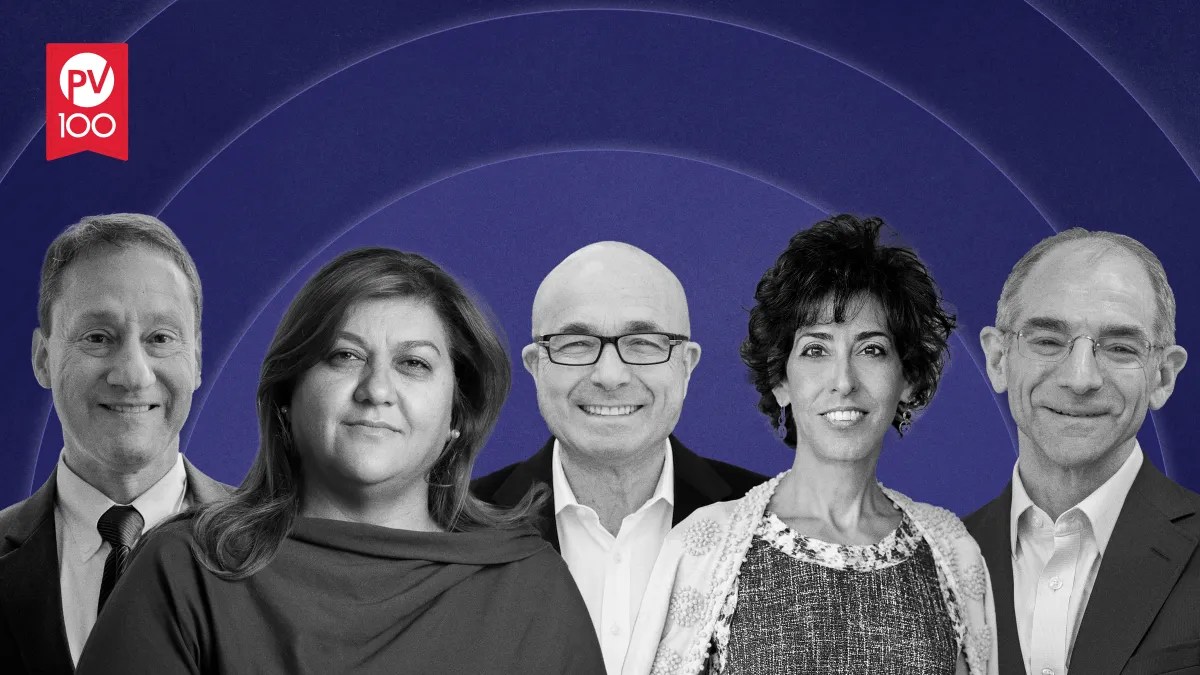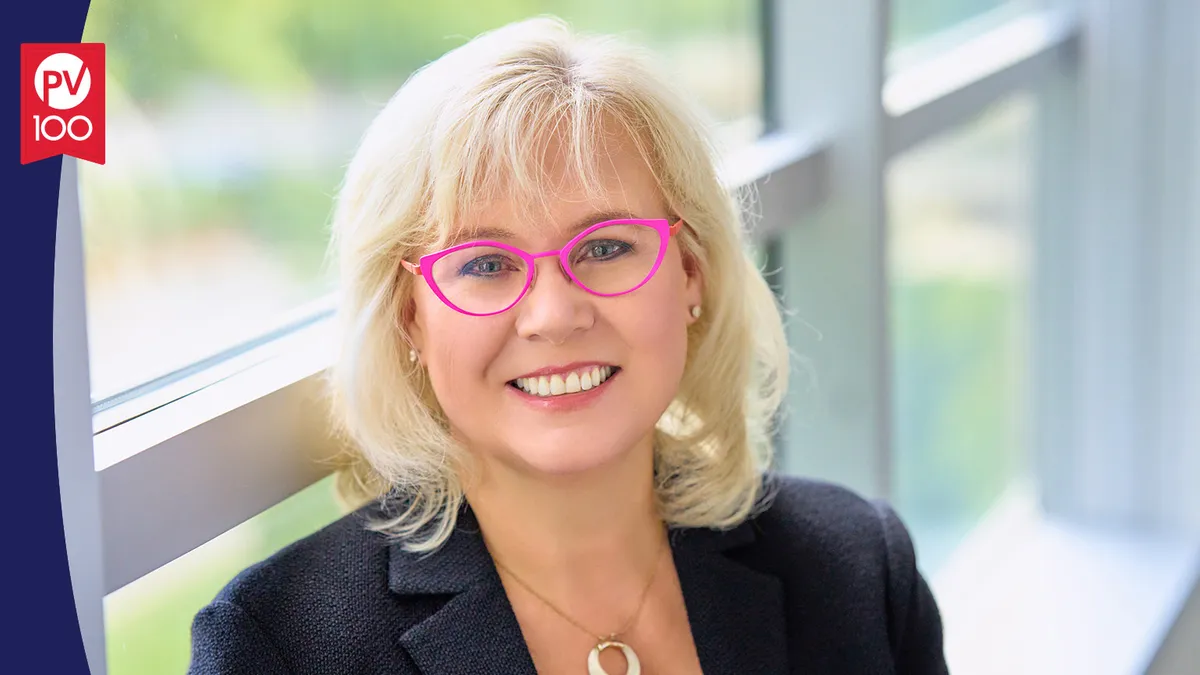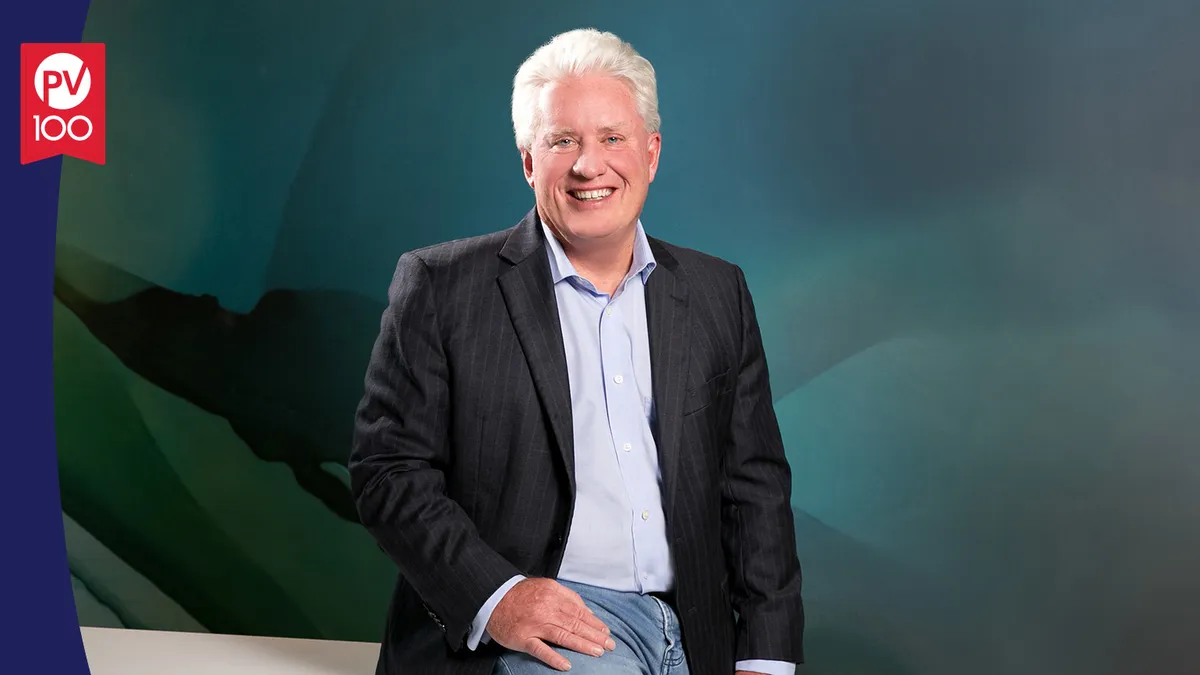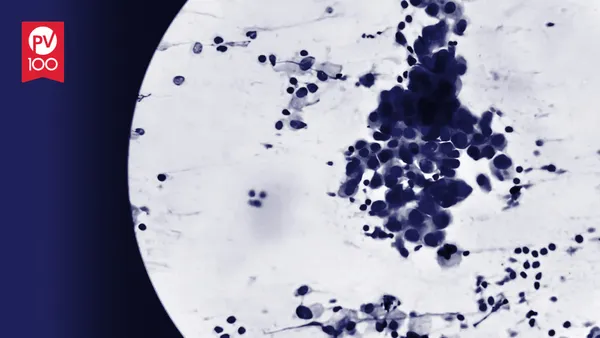Editor’s note: This story is part of our 2022 Red Jacket awards feature.
Fabio Gratton loves magic. Not the kind of magic that involves tricks like pulling a rabbit out of a hat. Instead, he’s drawn to the idea of triggering surprise in people who are expecting one thing, but get another. He calls it “Miyagi-ing.”
“Obviously, it’s a ‘Karate Kid’ reference,” he explained. “Mr. Miyagi teaches Daniel-san to be an incredible karate kid by making him do all these exercises that are tedious and that he doesn’t see the purpose of. But then in the end, you realized that Daniel-san got Miyagi-ed.”
Through several of his health tech startups, Gratton has been Miyagi-ing the pharma industry for years. inVibe, for example, is aimed at “transforming market research for life science companies by making data more efficient, analysis more effective and insights more actionable.” But with its voice-powered mobile solution that allows patients to more easily record their clinical experiences, Gratton says the company is really about helping the world be better at listening and building “real empathy.”
Another company he launched called CureClick “increases clinical trial awareness and accelerates patient recruitment” by leveraging “patient influencers.” But a deeper goal within the platform is to increase trial diversity.
Earlier this year, both companies were acquired by THREAD, a tech company specializing in electronic clinical outcome assessments and decentralized clinical trials (DCTs), which said in a statement that the acquisitions — along with its purchase of Modus Outcomes — had transformed it into the “industry’s leading patient-centric provider of DCTs.”
"I'll have crazy ideas, but after you talk about something long enough, you start to believe in the possibility of it."
Fabio Gratton
Founder, chief alchemist, Alchemy Factory
And they are just two of the dozen-or-so companies Gratton has kickstarted. About half of these companies succumbed to what he calls a “beautiful graveyard.” But of the six he’s built that have been “serious shots on goal,” four have been sold — a testament to their vitality and value in the industry.
And although each startup takes a different approach to healthcare challenges, there is another common thread running through all of Gratton’s pursuits: storytelling. A former Hollywood screenwriter, Gratton, who was a PharmaVoice 100 honoree multiple times before being named a Red Jacket this year, has transformed his gift for storytelling into new ways of listening to and communicating with patients and clients throughout the drug development value chain.
At Sonic Health, which was acquired by Spectrum Science earlier this year, he’s used “truth-seeking” and “story-driven idea-shop” approaches to help life sciences and marketing companies to infuse “innovation into their digital health initiatives,” he said.
And at the Alchemy Factory, a digital health incubator in southern California that strives to “transform what’s possible in healthcare marketing with the magic of collaboration,” Gratton has built a space for ideas and stories to be turned into new companies — including several of his own.
“[Gratton] is a rare and wonderful combination of creative brilliance, technical bravado and raw grit,” a nominator said.
Here, Gratton discusses the unlikely route that led to his career in healthcare, what it’s like to build and then pass along companies, and why he’s worried about the struggles facing the younger generation.
PHARMAVOICE: Tell me about the recent deals with THREAD.
FABIO GRATTON: Ever since starting Alchemy, things have been in a constant state of change, and I’ve been living in a surreal whirlwind. I love building and growing things, but the pandemic made me reassess and revisit what directions I wanted to go with my career.
And with THREAD in particular this incredible opportunity came up to take two of the things that I was working on that intersected well with their vision of the future. THREAD is a really unique company that was born relatively recently — six or seven years ago — in an incredibly unique and burgeoning space.
When I started talking to THREAD I realized that they were trying to modernize research. Their original focus was on the platform components — the innovations that allowed companies to reduce the burden of clinical trials by leveraging technology that would, say, bring telehealth rather than an in-person visit. Or bring a wearable or an e-diary rather than a paper diary. They were solving a similar problem about reducing the burden and friction in research in the trial itself.
We were trying to solve the problem of reducing the burden of and modernizing the research process at all other phases of the trial and preparing people for making sure that they knew what a trial should really be about. So we were both aiming in the same direction but fulfilling different needs. But we thought, ‘What happens if we bring these things together and built a better system?’ And could we start further upstream, listen better, develop therapies or help advance therapies that meet patient needs, help make sure that the endpoints are relevant to patients, help make sure that how we talk to patients is inclusive and attracts diversity.
As a serial entrepreneur, what has the transition of selling these companies been like?
First of all, I’m pretty lucky in the sense that THREAD has so many things going on that are so innovative. The reason I created Alchemy was about the idea of this chemical, magical potion making, and that if you take two elements and you bring them together that don’t necessarily belong together, at least at first glance, something explosive can happen. I think THREAD and inVibe lend themselves to that.
On the other hand, showing up to a meeting with the CEO that’s not you, and watching great people have great ideas and organize themselves and assign tasks and go off running, and you’re just one cog in this entire machinery — it’s disorienting. It’s not disturbing, it’s not frustrating, it’s just disorienting. But there’s also an element of relief. Since founding my first startup in 2000, I’ve spent 22 years of always feeling like all eyes turn to me when there are challenges, and that’s a lot to carry. At some point it was like, ‘Fabio, come on, seriously.’ I can’t run three or four companies and do them all well and have a life. So I deliberately set out on a quest to try to simplify and shed the layers of things I had created.
You could have used your talents at Google or somewhere in tech. What drew you to the life sciences?
Failure, honestly. I was a screenwriter and I was struggling to make ends meet. I needed a job. But I wanted an outlet for creativity. And then there was this world called agencies, which I knew nothing about. I randomly got placed at a healthcare agency, which was probably the type of job that nobody wanted at the time because everybody wanted to be doing really cool consumer stuff. But, once I was there I felt totally at home because I had grown up surrounded by academics and scientists.
But this was the late 90s and I discovered this world was completely devoid of stories and creativity. I was shocked. In other industries, there was so much incredible talent pursuing all the incredibly cool things. But when it came to healthcare and medicine there was really very little of this kind of talent. At the time there was nobody doing really cool things with technology, nobody really trying to do anything innovative with healthcare communication. I was like, this doesn’t make any sense — this is actually some of the most important stuff in the world.
I didn’t know at the time that it was going to be so much more meaningful, but it didn’t take me long to realize how meaningful it was.
Tell me about the genesis of Alchemy Factory.
When I sold Ignite — and it then became part of inVentiv Health, now most people know it as Syneos Health — I had an incredible adventure getting to know all those people. It was 2013, I just had my little baby girl and I knew I needed a break. So I did what a lot of people do in transition between companies — I started asking myself, ‘What am I going to do next?’
The genesis was a book I was reading during this hiatus called ‘The Idea Factory: Bell Labs and the Great Age of American Innovation.’ In that book was the idea that there’s all this innovation going on in science and they decided to pull the brightest and best minds together and just mingle, talk, brainstorm, create and see what happens.
"I try to mentor others to listen to people like me — but also make sure they understand that I'm just one of a thousand flashlights in their road of life."
Fabio Gratton
Founder, chief alchemist, Alchemy Factory
So Alchemy started out as a project to bring people together to tackle random projects. We didn’t have a physical place — we would just meet at places with a good internet signal and coffee. And then after we grew to about 10 people doing different projects we said, ‘Let’s build our own place that reflects the way we want to work.’ So, we found this terrible looking place, tore it completely apart, and built this hybrid bar-coffee-shop looking environment. Then everybody just moved into it. It was like a fantasy coming to life.
We didn’t have a great ambition to build and sell companies. We were just us living our dream. We were all showing up to this place, we were our own bosses and we worked on these ideas that we thought were interesting, collaboratively.
Oh my God, it was so fun. We didn’t have that foresight to imagine what it would be, but once it became what it was, it felt magical.
That must have been a real highlight of your career. How did Alchemy weather the changes of the pandemic?
The pandemic was the ultimate lab killer in the sense that a lot of people said, ‘We can work from everywhere.’ Yes, you can, but man, it was so great to work together in the same space, with the energy that literally traverses the room. There was just something so magical about that. And when the pandemic hit, that all ended pretty abruptly. And there was no going back.
As a leader, what kinds of issues are keeping you up at night?
This may sound controversial, but I’m really worried about the future of work, vis-à-vis the pandemic remote environment. We haven’t made anybody come back to work and we don’t plan on it. But I’m really, really worried about the young people born to a screen, sticking to a screen, staring at a screen and never looking up. What’s their first job going to look like if we stay hybrid or remote?
After all, interacting and socializing is why I created this place. I’m very biased on this topic. To me what keeps me up at night is this: What is the future of work going to look like for the next generation of people entering the workforce that don’t know any other way? What’s it going to look like for my children? If you’re in your 30s or your 40s, you’ve had this career and this is great. But what about the 21-year-old coming out of college? What if they don’t get all those things we got from how we learned and interacted with others?
The only other thing that keeps me up at night that’s kind of adjacent to that is the overabundance of available knowledge and information at the fingertips of everybody. Again, this goes back to the youth. It worries me that before people will create something they will Google it, and if they see that’s already been made or there’s already a company like that or somebody’s already doing it, then they won’t do it. So then my worry is that there’s going to be a lot of people not pursuing new ideas or innovating because they believe it’s all been done before. When I was writing screenplays, had I found a library of movies and screenplays at my fingertips of everything that’s been done, I may have never written a story in my life.
What do you want your legacy to be?
One of the mantras I have now has to do with trust. What I mean by that is: At the core of leading, building, creating and getting people to join or follow or be inspired — a lot of that is about trust. People need to believe that you mean what you say, and say what you mean. I have always tried to make sure that my actions always align with a spirit of trust.
I want my legacy to be that people trusted me, they knew I was honest and that when I was wrong, I said I was wrong, and that I was always fair. Because who knows, maybe one day I will have some crazy idea and I will be calling them up again. And when I do, I would love them to answer. I truly hope that one day, when I’m gone, people say ‘Yea, if he had asked me to join him on some other wacky adventure, I wouldn’t have hesitated. I would have come running.’
See our full list of 2022 PharmaVoice 100 winners.


